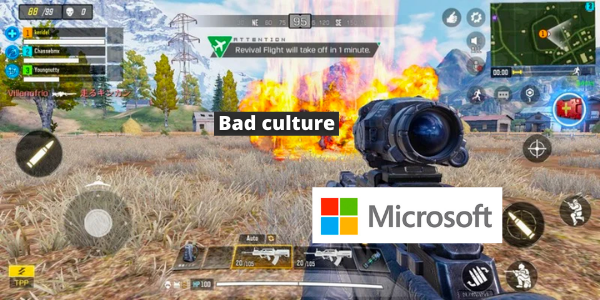Get smarter than your boss in 5 minutes with today's business news.
💵Logistics companies are adding Omicron levies
🎮Microsoft buys WoW and Call of Duty maker
👩💼Goldman Sachs feels the labour shortage pinch
Hey hey Flux fam!
Here's everything you need to know today - in under 3 minutes.
💵Logistics companies are adding Omicron levies
🎮Microsoft buys WoW and Call of Duty maker
👩💼Goldman Sachs feels the labour shortage pinch
Consumer confidence is usually up in Jan - ya know, new year, new retail industry. But this time, it isn’t so. In fact, consumer confidence is down 7.6% to its lowest level since October 2020. Thanks Omicron.
.gif)
Background: Omicron, Delta's more contagious partner-in-crime is in the building. It means close contacts are up...isolations are up...and staff just ain't showing up to work (or in fancy terms - 'pandemic-related absenteeism' is rising).
What happened: Logistics companies are being hit hard. For example, Qube, which handles around 750,000 car imports are year, are having to introduce a new levy of around $25 per container.
What else: Why? well, because the company is short-staffed, it needs to cover the costs of recruiting new, temporary labour. Ouch.
💡COVID had some obvious side effects...and some less-obvious side effects.
💡The more obvious side effects were:
💡But pandemic-related absenteeism wasn't on the map. So now, with businesses spending more on recruitment...they need to recoup those funds elsewhere. That means we may eventually get slapped with shipping levies ourselves. The horror!

Background: Microsoft have been on an acquisition blitz lately. There was LinkedIn ($36 billion), GitHub ($10.5 billion)...and now, they've made their biggest one yet: Activision Blizzard for $96 billion.
What happened: Activision Blizzard is an American video game company behind cult-faves like Call of Duty, Crash Bandicoot and even Guitar Hero.
What else: While they created some extremely successful games, things haven't been great culturally. The company's CEO stepped down after MANY investigations and sexual harassment allegations.
💡An acquisition is an opportunity for executives to create a cultural reset.
💡When companies are acquired, or merge together, it isn't just the balance sheets that change, or the HR teams that join forces. It's the culture, too.
💡Activision Blizzard had some pretty serious allegations of misconduct. In fact, only 39% of employees approved of the previous CEO, according to Glassdoor. On the other hand, Microsoft is relatively clean. So, being acquired by Microsoft may be the fresh start Activision - and its staff - needs.
.gif)
Background: Goldman Sachs are an investment bank and broader financial services company. They're kinda like the créme de la créme of banking.
What happened: This year, things haven't been that rosy over at ol' Goldman's house. This crew missed their quarterly profit expectations (a very rare occurrence for these straight-A students)...and shares tanked 8% when news broke.
What else: The bank says there are a few things at play. But mainly - it's about wage inflation. In other words, Goldies is rewarding top talent in a competitive labour environment.
💡Wage inflation is the increase in workers' wages over time. It generally happens naturally - as the price of goods and services increases and the cost of living rises.
💡But in this case, it seems that wage inflation happened due to labour pressures. In the US, talent shortages are at a 10-year high. Back in 2010, 14% of employers struggled to fill positions. Today? it's 69%. It's the same story in Oz, too.
💡The lack of quality workers means companies need to increase salaries to attract and retain new talent. For Goldman Sachs, these higher wages are crunching the company's bottom line.
Sign up for Flux and join 100,000 members of the Flux family